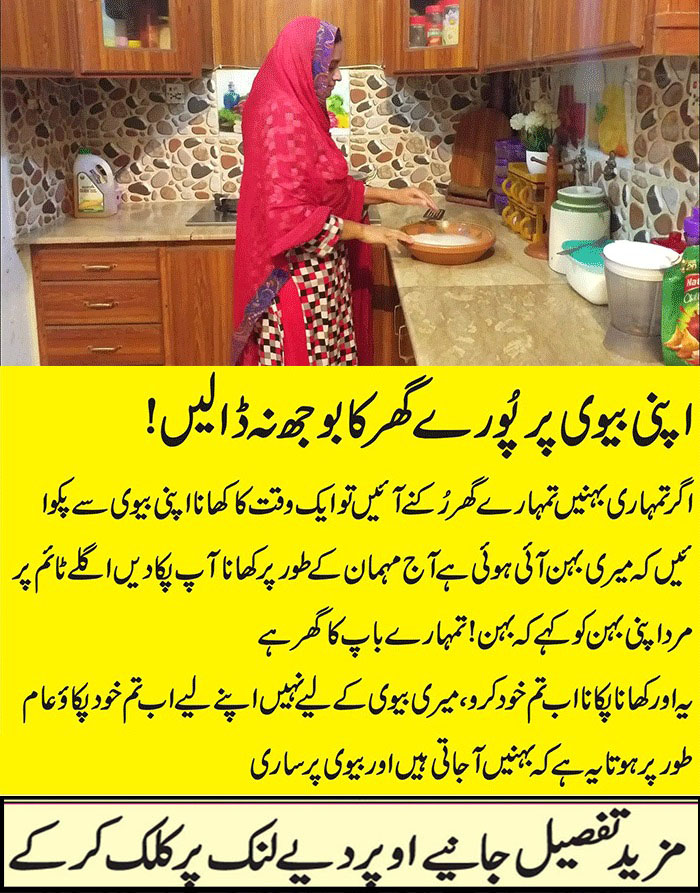Lahore: Couples who do chores together are happier, fight less, and have better healthier lives, according to new research. Americans spend an average of 664 hours doing household work each year, and women spend about an hour more each day tidying up than men do. Equal sharing of the burden of chores is becoming more common, however, and research suggests that as it does women are feeling less put upon and more in the mood.
What’s more, married life therapist Dr. Ian Kerner advises that doing housework together can make the chores go quicker, build communications with your partner and even turn to make the dish-washing steamy. Juvenile as it may seem, fighting over housework was the primary cause of divorce for a full quarter of Americans, according to a survey published earlier this year.
Shadi

rishta-aunty-1
husband-wife
Children Inherit Intelligence from Their Mother
And, apparently, who does the dishes is the biggest cause for quarrels for women. Researchers from three universities broke down how more than 600 couples divvy up chores, and how satisfied they were in their relationships and s-e-x lives. Women who felt like they washed the lion’s share of the dishes were more likely to be unhappy with their partners.
When it comes to housework, we have come a long way toward equality, and appear to be better for it. Research on chore habits using data from the 1980s and 1990s actually suggested that couples who took more traditional household roles were happier, but a newer survey found that both partners are better off when the duties are split.
‘A lot of today’s relationships are sort of egalitarian and having a partner who helps out with chores is just about having a collaborative, egalitarian relationship, which is what many of us expect,’ says Dr. Kerner. But overall, who does the housework means a lot more to women than it does to men. Division of at-home labor did not predict much about how men felt about their relationships, but having to spend more time at the kitchen sink seems to really put a damper on women’s s-e-x drives.
The survey did not ask women why dishes were such a sore subject for them, but a few factors may be at play. Sloughing soggy half-eaten food off of plates and turning your fingers to prunes under running water can be a nasty business. Plus, dishes follow meal preparations – which many women also do – and doing both can feel like double-duty at the end of a long day.
‘Women out there in the workforce resent coming home and doing a double-shift, and feel like [doing the dishes] is reverting to antiquated gender norms,’ Kerner says. When their male partners roll up their sleeves and do the dishes though, women feel more attended to and cared for, which in turn was linked to higher rates of overall relationship and intimacy satisfaction.
The study authors hinted that the general changes to gender roles that have been slowly occurring have helped to push along a more egalitarian home dynamic. Now, in the majority of marriages – about 60 percent – both people work. That change has upset the old dynamic of a ‘woman’s’ work being in the home, while the man is at his job, meaning both people have the same amount of time to accomplish things around the house.
Better yet, couples can make chores themselves a more intimate, bonding activity by doing them together. ‘Doing things with your partner – making life easier and eliminating stress by taking things off your to-do list – helps to cement your sense of partnership and attachment, so when you think about your partner you see them as someone who is ethical and considerate
